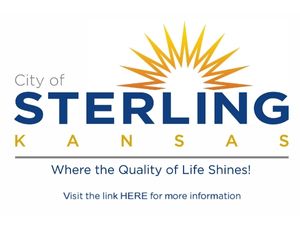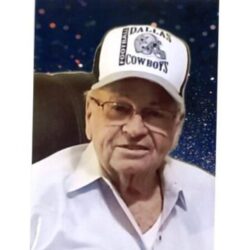Kansas weighs legalizing death penalty by hypoxia after Alabama execution
By Allison Kite, Kansas Reflector
Some of Kansas’ top prosecutors are pushing state lawmakers to approve a new method for carrying out the death penalty, saying the state is nearing what could be its first execution since the 1960s.
The execution method, hypoxia — wherein an inmate is deprived of oxygen until death — is only approved in three states and was used in the United States for the first time last month in Alabama.
Kansas Attorney General Kris Kobach said in a press conference Thursday that the only execution method permitted under state law — lethal injection — is becoming increasingly difficult to carry out as some of the state’s nine death row inmates near the end of their appeals phases.
“In a way, we are lying to the people of Kansas if we say that we have the death penalty, but we actually can’t carry out an execution,” Kobach said.
Kobach, along with state and local law enforcement officials, later Thursday urged Kansas legislators to pass a bill allowing the state to put inmates to death by hypoxia. Flanked by loved ones of capital murder victims, they said ensuring the state can swiftly execute individuals once appeals are exhausted would allow for closure for victimized families.
“I think there is a particular injury that is done to victims’ families when they have to wait so long,” Kobach told the Kansas House Judiciary Committee.
Kobach said the legislation to approve hypoxia as a method was necessary because manufacturers have increasingly blocked their drugs from being used for lethal injection. It would be a “grave injustice,” Kobach said if inmates reached the end of their appeals and the state could not carry out executions because it did not have a means of administering lethal injection or the statutory ability to use hypoxia.
One inmate, he said, could exhaust the appeals process and be executed by the end of the year depending on how quickly the courts work.
Tearful family members of victims said they had been retraumatized as they cooperated with investigations and trials against their loved ones’ murderers. They urged lawmakers to ensure death row inmates be executed quickly to end families’ suffering.
Misty Smith — whose daughter Kelsey was abducted from an Overland Park Target store, raped and murdered in 2007 — implored lawmakers approve use of hypoxia to execute inmates. The killer in that case pleaded guilty and did not receive the death penalty.
“This penalty is not about should there be a death penalty?” Smith told the Judiciary Committee. “There is one.”
Smith said death row inmates “are not nice people.”
“Our daughter was kidnapped in broad daylight, taken by gunpoint across state lines, raped repeatedly,” Smith said. “She was choked out with her own belt, brought back and then raped again and choked out again until he finally murdered her.”
Jennifer Aldridge’s sister, Jodi Sanderholm, was murdered 17 years ago, and still, the family is going through appeals. Aldridge said she wants death row inmates to be executed so families don’t have to “wait an entire generation.”
“The day that he was sentenced was not the end for us,” she said at Thursday’s press conference. “It was honestly just the beginning. We are still dealing with him, going to court with him, seeing his face, hearing his name. It’s not about revenge. The death penalty is about justice.”
The legislation was met with pushback from religious and anti-death penalty groups, including family members who had also lost loved ones to homicide. Defense attorneys warned the method could represent a cruel or unusual punishment, and an anesthesiologist said hypoxia is a “terrible way to die.”
Lethal injection, too, is flawed, said Joel Zivot, the anesthesiologist at Emory University in Atlanta.
“I’ve reviewed autopsies of about 250 prisoners executed by lethal injection,” Zivot said. “And about eight out of 10 times, instead of falling off to sleep and dying, they actually are drowning in their own blood.”
Alabama last month executed Kenneth Eugene Smith by hypoxia, affixing a mask to his face to administer pure nitrogen gas and displace the oxygen in his lungs, according to the Associated Press. Hypoxia can use other gasses as well.
The Associated Press reported Smith’s execution, which took place after the U.S. Supreme Court declined to halt his execution, took just over 20 minutes. After the gas was administered, Smith “appeared to remain conscious for several minutes” and shook and writhed on the gurney, the AP reported.
Kobach cast doubt on the descriptions of Smith’s discomfort and insisted the method is a humane execution method. He said the Eighth Amendment to the U.S. Constitution, which protects against cruel and unusual punishment, doesn’t guarantee a completely painless execution.
“Even if there were some discomfort — I don’t think there was any in the Alabama case — we need to remember the victims who suffered extraordinary pain,” he said.
Rebecca Woodman, an attorney who has represented inmates sentenced to death, said Alabama execution had been described as “nothing short of torture.” She said the committee should not authorize “this gruesome method of execution.”
“Beyond the plain horror of the lethal gas method it contemplates,” she said, “(the bill) contains numerous constitutional deficiencies that will deprive prisoners of fundamental due process and substantially increase the risk of inflicting cruel, unusual and torturous pain.”
The legislation does not specify that an execution by hypoxia be conducted using nitrogen or any other gas. Democratic state Rep. John Carmichael, of Wichita, pointed out the lack of definition of hypoxia in the bill and questioned whether it could permit the state to suffocate an inmate.
Kobach defended the legislation, saying suffocation and hypoxia are different. When Carmichael disagreed, Kobach suggested he offer an amendment to define the method.
Carmichael replied he had “no intention of trying to save this constitutionally flawed and cruel bill.”

























































